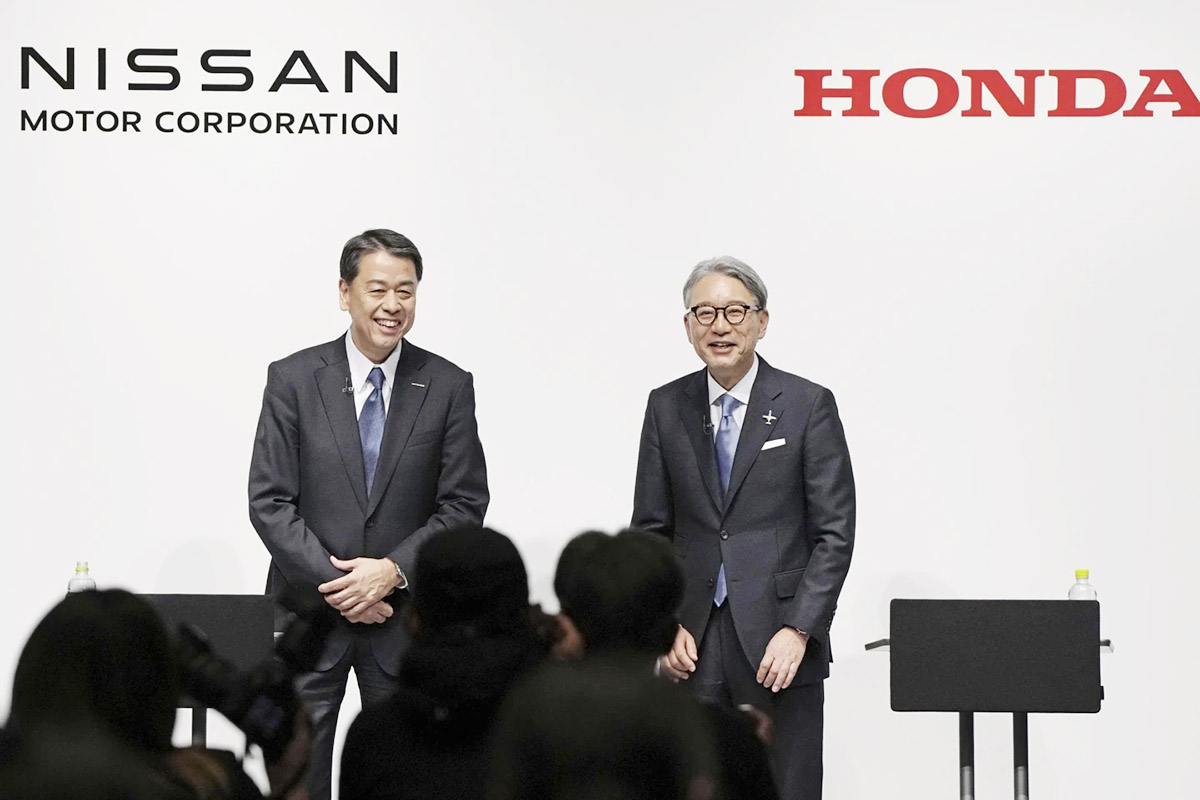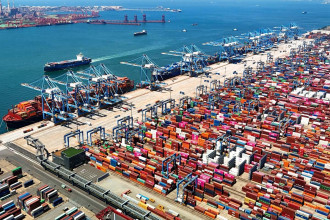
TOKYO: Japanese automakers Honda and Nissan have announced plans to merge, aiming to form the world’s third-largest automaker by sales amidst significant industry shifts towards electric vehicles and renewable energy.
The two companies signed a memorandum of understanding on Monday. Additionally, Mitsubishi Motors Corp, a smaller member of the Nissan alliance, agreed to join the discussions on integrating their businesses.
Japanese automakers, including Honda and Nissan, have lagged behind in the electric vehicle (EV) sector. They are now striving to cut costs and catch up with leaders like China’s BYD and Tesla, which dominate the market.
Toshihiro Mibe, President of Honda, stated that Honda and Nissan will unify their operations under a joint holding company, with Honda leading the new management while retaining the principles and brands of each company. They aim to finalise the merger agreement by June and list the holding company on the Tokyo Stock Exchange by August 2026.
"There are points that need to be studied and discussed," Mibe said, acknowledging the possibility of the merger not being implemented.
A merger could create a company worth over $50 billion, giving Honda, Nissan, and Mitsubishi the scale to compete with Toyota Motor Corp and Germany's Volkswagen AG. Toyota currently has technology partnerships with Japan’s Mazda Motor Corp and Subaru Corp.
Earlier reports suggested that Taiwan’s Foxconn was interested in buying shares from Nissan's other alliance partner, France's Renault SA, but Nissan's CEO, Makoto Uchida, confirmed Foxconn had not approached Nissan directly.
Despite a potential merger, Toyota would remain the leading Japanese automaker, having produced 11.5 million vehicles in 2023. The combined output of the three smaller companies would be about 8 million vehicles.
"We have come to the realisation that to lead this mobility transformation, a bolder change than specific collaborations is necessary," Mibe said.
The three companies had previously agreed to share EV components like batteries and jointly research autonomous driving software.
Nissan has faced challenges since the 2018 arrest of its former chairman Carlos Ghosn, who fled to Lebanon after being charged with fraud and misuse of company assets. Ghosn criticised the merger as a 'desperate move.'
Honda could benefit from Nissan's expertise in large SUVs and EV technology. However, Nissan recently announced a reduction of 9,000 jobs and a 20% cut in global production capacity following financial losses.
Despite these challenges, Uchida remains optimistic about the merger's potential to deliver greater value to customers.
Fitch Ratings recently downgraded Nissan’s credit outlook to "negative" due to declining profitability, though the company retains a strong financial structure with substantial cash reserves.
Nissan’s shares rose 1.6% in Tokyo trading following news of the merger, while Honda’s shares surged 3.8%.
Cabinet Secretary Yoshimasa Hayashi commented on the need for Japanese companies to stay competitive, highlighting the importance of storage battery and software technologies in the evolving market.
"As the business environment surrounding the automobile industry largely changes, competitiveness in storage batteries and software is increasingly important. We expect measures needed to survive international competition will be taken," Hayashi said.
By RSS/AP





